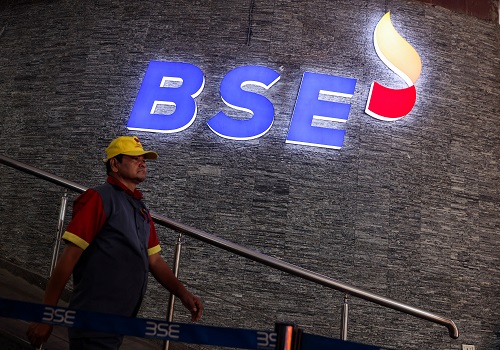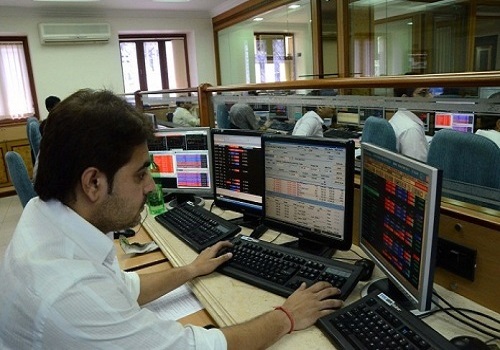Opening Bell : Markets likely to get cautious start amid rising geopolitical crisis
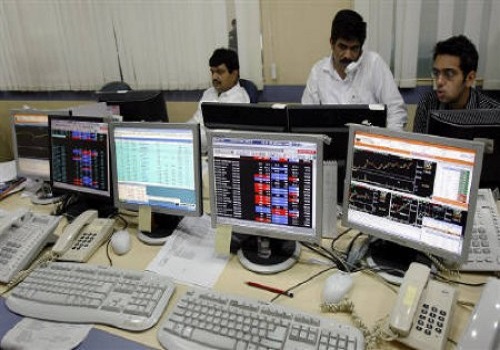
Follow us Now on Telegram ! Get daily 10 - 12 important updates on Business, Finance and Investment. Join our Telegram Channel
Indian markets ended the choppy session in green terrain on Friday as investors booked profit in pharmaceutical, and metal stocks. Today, markets are likely to get cautious start amid rising geopolitical crisis. China announced sanctions on five US defence-related companies in response to sanctions on Chinese companies and arm sales to Taiwan. Elsewhere, North Korea has been firing artillery shells near South Korean sea boundary for the last three days, following a provocative statement from Kim Yo Jong, the sister and key ally of North Korea's supreme leader Kim Jong Un. Domestically, traders will be concerned as a report by economic think tank GTRI said the increasing Red Sea crisis may impact trade as it is expected to push shipping costs by up to 60 per cent and insurance premium by 20 per cent. Due to these attacks, the shippers are taking consignments through the Cape of Good Hope, resulting in delays of about 20 days. Traders may take note of the Finance Ministry’s statement that as many as 29,273 bogus firms involved in alleged input tax credit (ITC) evasion of Rs 44,015 crore have been identified since the special hunt against false registrations began in mid-May 2023. Meanwhile, the Reserve Bank of India has tightened rules for the issuance of short term Commercial Papers (CPs) and Non-Convertible Debentures (NCDs), with an initial maturity of up to one year. The new norms, which come into effect from April 1, involve six key changes. However, some respite may come later in the day as the first advance estimates of national income released by the National Statistical Office (NSO) projected the Indian economy to grow at 7.3 per cent in 2023-2024 - higher than the Reserve Bank of India’s estimate of 7 per cent - assuming an investment-led recovery in the world’s fifth largest economy. This beats the Street estimates by a wide margin. The Indian economy grew 7.7 per cent in the first half (April-September) of FY24. Some support may come as the Reserve Bank said India’s forex reserves jumped by $2.759 billion to $623.2 billion in the week ended December 29. In the previous reporting week, the overall reserves had increased by $4.471 billion to $620.441 billion. There will be some reaction stocks related to agriculture sector as the first advance estimates of national income released by the National Statistical Office (NSO) showed that the agriculture sector is projected to see a growth of 1.8 per cent in the FY24, a seven-year low, due to poor Kharif harvest and weak initial sowing of Rabi crops. Insurance industry stocks will be in limelight as the monthly premiums of non-life insurance companies grew by 14.74 per cent in December 2023 to Rs 25,098.18 crore from Rs 21,874.61 crore in the year-ago month. According to the General Insurance Council (GIC)’s monthly data, public-sector general insurance companies grew 13.10 per cent.
The US markets ended higher on Friday as investors digest data hinting that the Federal Reserve can pull off a soft landing for the world’s largest economy. Asian markets are trading mostly in red on Monday as investors look ahead to key economic data and events in the following days.
Back home, Indian equity benchmarks made a second straight day of gains on Friday, shrugging off weak global cues. Headline indices opened higher and traded in green for most part of the day as provisional data from the NSE showed foreign institutional investors (FIIs) bought shares worth Rs 1,513.41 crore on January 4. Sentiments remained positive with the United Nations (UN) World Economic Situation and Prospects (WESP) 2024 report stating that India’s Gross domestic product (GDP) growth is projected to remain strong at 6.2 per cent in 2024 mainly supported by resilient private consumption and strong public investment. It also said that GDP in South Asia is projected to increase by 5.2 per cent in 2024, driven by a robust expansion in India, which remains the fastest-growing large economy in the world. Some support came in with a private report that India is likely to project higher economic growth estimates of around 7% for the 2023/24 fiscal year ending in March, compared with earlier government forecasts when the National Statistical Office releases its first advance GDP estimates on Friday. However, markets gave up early gains to slip in red in late afternoon deals, as traders turned cautious with a private report that the JN.1 subvariant has become the dominant Covid-19 variant in India, accounting for more than 60% of the coronavirus cases in the country. As of Thursday, 511 cases of the subvariant JN.1 have been reported across the country. India recorded 760 new Covid-19 cases and two deaths, while the active caseload saw a slight dip to 4,423 from 4,440 on the previous day. Some concern also came with Secretary in the Department for Promotion of Industry and Internal Trade (DPIIT) Rajesh Kumar Singh stating that India will have to eventually move to a lower customs duty regime and cannot continue to protect domestic manufacturers by citing infant industry argument. However, markets soon regained traction to end higher, taking support from data showing that India's services sector ended 2023 on a firm footing, with activity expanding at its fastest pace in three months in December on buoyant demand and an optimistic year-ahead outlook. The HSBC India Services Purchasing Managers' Index, compiled by S&P Global, rose sharply in December to 59.0 from November's one-year low of 56.9. Finally, the BSE Sensex rose 178.58 points or 0.25% to 72,026.15 and the CNX Nifty was up by 52.20 points or 0.24% to 21,710.80.
Above views are of the author and not of the website kindly read disclaimer








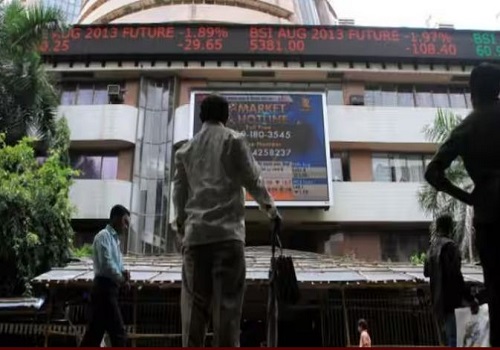

Tag News

Quote on?Market Wrap by Shrikant Chouhan, Head Equity Research, Kotak Securities


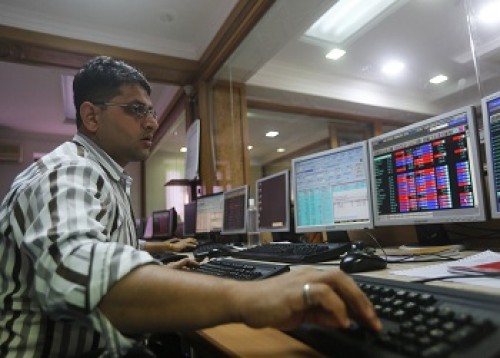


 320-x-100_uti_gold.jpg" alt="Advertisement">
320-x-100_uti_gold.jpg" alt="Advertisement">



